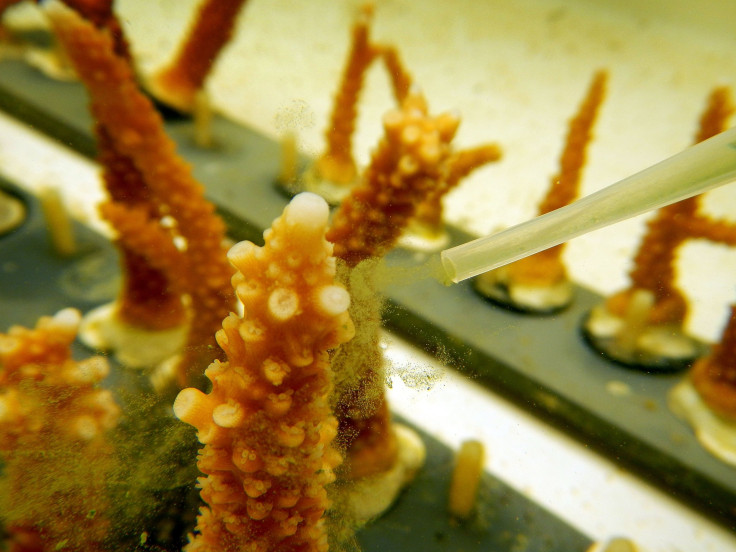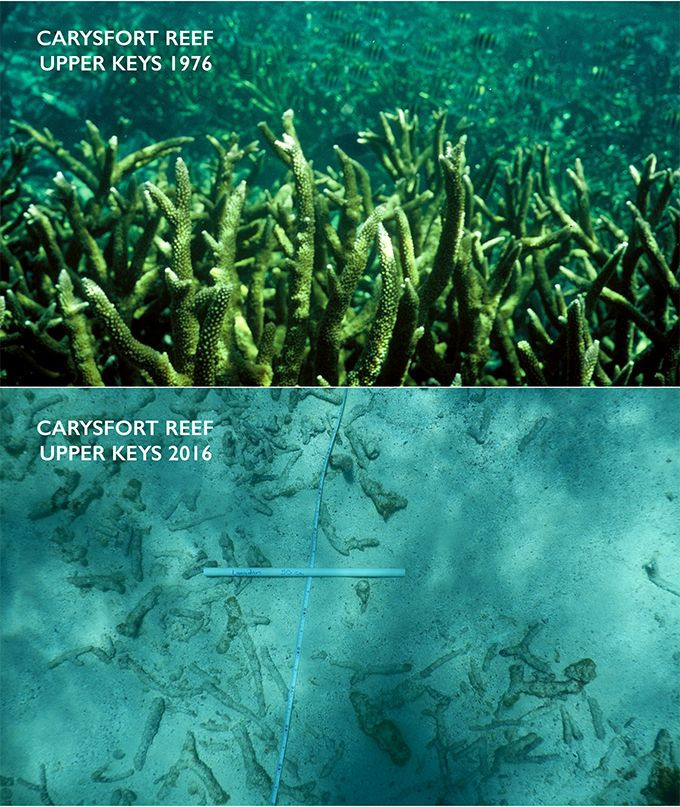Florida’s Coral Reefs Are Disintegrating Faster Than Previously Estimated

The fact that an increase in ocean acidification is leading to widespread coral bleaching is already well known, and scientists have, in recent weeks, documented widespread destruction of corals in Australia’s Great Barrier Reef.
Now, a new study, published Monday in the journal Global Biogeochemical Cycles has revealed that Florida’s coral reef — the only living coral reef in the continental United States — is starting to disintegrate due to ocean acidification.
“We don’t have as much time as we previously thought,” Chris Langdon, a professor of marine biology and ecology at the University of Miami's Rosensteil School of Marine & Atmospheric Science and a senior author of the study, said in a statement. “The reefs are beginning to dissolve away.”

Coral reefs, which are delicate marine biodiversity hotspots where corals grow in symbiosis with algae, become bleached when they are stressed — due to a rise in ocean temperatures, acidity, or both. This expels the symbiotic algae living in corals’ tissues, causing them to turn completely white.
Increase in ocean water acidity also leads to a decrease in the concentration of limestone — which forms the reef’s skeleton. This in turn causes the reefs to dissolve.
The latest study, which uses data gathered along the 124-mile stretch of the Florida Reef Tract north of Biscayne National Park to the Looe Key National Marine Sanctuary between 2009 and 2010, found that reefs in the upper regions of Florida Keys were experiencing loss of limestone in the winter months at a rate greater than the amount corals are able to produce on an annual basis during spring and summer.
Florida Keys’ reefs are estimated to be worth $7.6 billion, taking into account the revenue they generate through tourism and through the seafood industry. Scientists had previously estimated that ocean pH would not fall low enough for the reefs in the region to start dissolving until at least 2050.
“This is one more reason why we need to get serious about reducing carbon dioxide emission sooner rather than later,” Langdon said in the statement. “The worst bleaching years on record in the Florida Keys were 2014-2015, so there’s a chance the reefs could be worse now.”
© Copyright IBTimes 2024. All rights reserved.






















